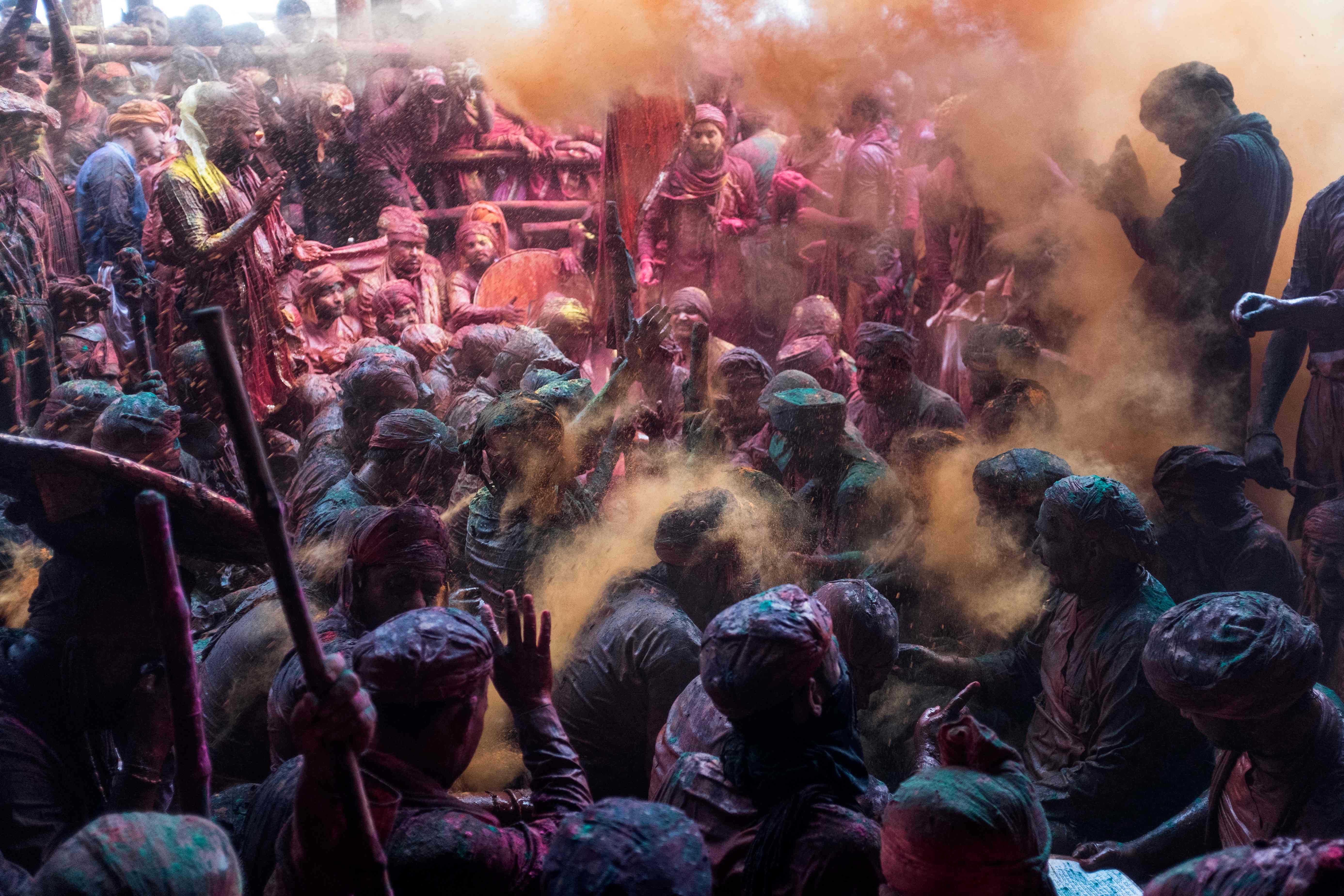India coronavirus: Delhi bans celebrations for Holi festival of colour and begins random testing
India pulls the reign on public festivities amidst spike in Covid-19 cases

Your support helps us to tell the story
From reproductive rights to climate change to Big Tech, The Independent is on the ground when the story is developing. Whether it's investigating the financials of Elon Musk's pro-Trump PAC or producing our latest documentary, 'The A Word', which shines a light on the American women fighting for reproductive rights, we know how important it is to parse out the facts from the messaging.
At such a critical moment in US history, we need reporters on the ground. Your donation allows us to keep sending journalists to speak to both sides of the story.
The Independent is trusted by Americans across the entire political spectrum. And unlike many other quality news outlets, we choose not to lock Americans out of our reporting and analysis with paywalls. We believe quality journalism should be available to everyone, paid for by those who can afford it.
Your support makes all the difference.The government of Delhi has banned all public celebrations for Holi and other upcoming festivals to control rising cases of Covid-19 in the Indian national capital.
The order issued by Delhi’s Disaster Management Authority on Tuesday said it reviewed the situation of the pandemic and observed “that there has been a persistent rise” in Covid-19 cases during the last fortnight.
“It is anticipated that gatherings, congregations and public celebrations during upcoming festivals like Holi, Shab-e-Barat, Navratri may pose a considerable threat of spread of virus and may cause setback to the appreciable gains made in the suppression of chain of transmission of Covid-19 cases in Delhi,” said the order.
Hence it has been decided that “public celebrations and all gatherings and congregations during upcoming festivals should not be allowed in public places.”
The festivals of Navratri and Holi are mainly observed by Hindus, while Shab-e-Barat, or the night of atonement, is a day marked with prayers for the dead by Muslims. People typically throng the streets on Holi to play with coloured powders and liquids.
Read more:
Authorities have also decided to conduct random testing for Covid-19 at the city’s airport, railway terminals and bus stations.
They have directed state authorities and the police to ensure that any public celebrations, gatherings during the festivals are not allowed in public places, public grounds, public parks, markets and religious places across the city.
The disaster management authority said that if any person is found violating the order, action can be taken under the Disaster Management Act 2005, which includes provisions of fine and imprisonment, and the Indian penal Code.
According to local media reports, several other states and cities across India such as Gujarat, Maharashtra, Odisha and Lucknow have come out with similar bans or restrictions to avoid a spike in Covid-19 cases.
The rise in Covid-19 cases has not just been witnessed in the national capital but across the country over the last one month. A few days ago, India recorded over 43,000 coronavirus cases – the highest single-day spike in the last four months. On 23 March, India recorded 40,715 cases.
Since the start of the pandemic, India has recorded over 11.68 million Covid-19 cases including at least 160,100 deaths. India started the vaccination process in January 2021 and so far an estimated 48.5 million Covid-19 vaccine doses have been administered – of which 40 million were the first doses.
Join our commenting forum
Join thought-provoking conversations, follow other Independent readers and see their replies
Comments